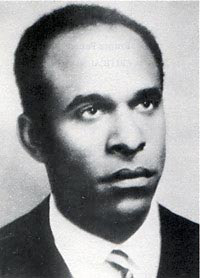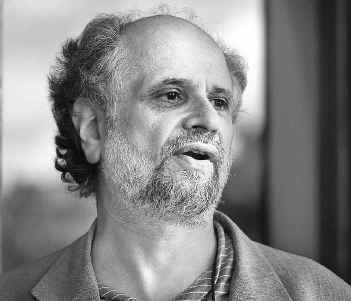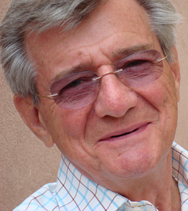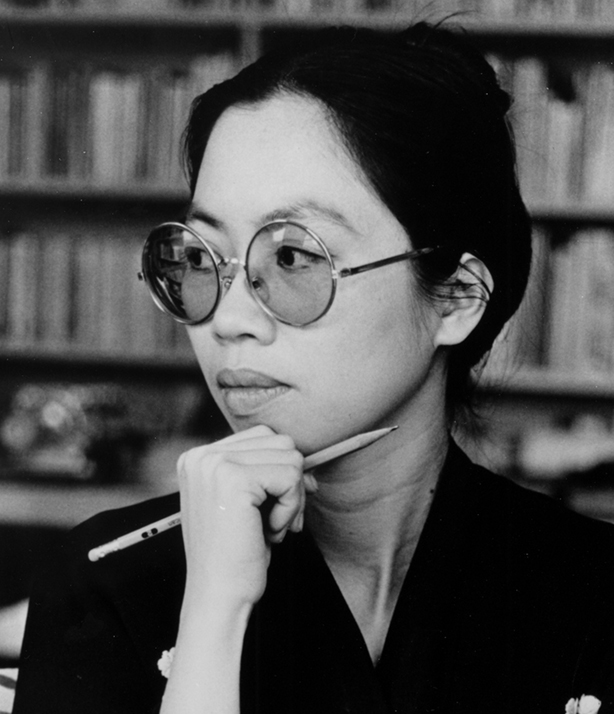
POSTCOLONIAL/DECOLONIAL THEORIES
"Postcolonial" (or post-colonial) as a concept enters critical discourse in its current meanings in the late 1970s and early 1980s, but both the practice and the theory of postcolonial resistance go back much further (indeed to the origins of colonialism itself). Thus below I list a number of writers who were "postcolonial" avant la lettre, including figures like Frantz Fanon and Albert Memmi, the Caribbean negritude writers, and some US critics whose work also presages some of the positions now labeled postcolonial. The term means to suggest both resistance to the "colonial" and that the "colonial" and its discourses continue to shape cultures whose revolutions have overthrown formal ties to their former colonial rulers. This ambiguity owes a good deal to post-structuralist linguistic theory as it has influenced and been transformed by the three most influential postcolonial critics Edward Said, Gayatri Spivak, and Homi Bhabha.
Many genealogists of postcolonial thought, including Bhabha himself, credit Said's Orientalism as the founding work for the field. Said's argument that "the Orient" was a fantastical, real material-discursive construct of "the West" that shaped the real and imagined existences of those subjected to the fantasy, set many of the terms for subsequent theoretical development, including the notion that, in turn, this "othering" process used the Orient to create, define, and solidify the "West." This complex, mutually constitutive process, enacted with nuanced difference across the range of the colonized world(s), and through a variety of textual and other practices, is the object of postcolonial analysis.
Both the term and various theoretical formulations of the "postcolonial" have been controversial. I have included works below which take very different approaches to what broadly can be labeled postcolonial, and I have included works which offer strong critiques of some of the limits of the field as practiced by some of it most prominent figures. Some, like Emma Perez and Linda Tuhiwai Smith, use the term decolonial to emphasize that we are not past (post) colonial, and that only the active agency of the colonized will complete the process of eradicating the most perncicious legacies of the colonial and neo-colonial eras.
I have also included a separate section on North American post/decolonial studies. This is meant both to suggest affinities and differences. In the context of American Studies the work of figures like C.L.R. James, and W.E.B. DuBois, and more recently H.L. Gates, Jr., Gloria Anzaldúa, Lisa Lowe, and José David Saldívar, to name only a few, have anticipated, drawn from, critiqued and applied postcolonial theory to this continent. Part of that work emerges out of traditions in US ethnic studies that have traced diasporic links between home countries and new worlds for several decades. Another part of that work has included decentering the "United States" from its claim on the term "America," a move that connects the hemispheres, points toward the history of the US as an imperial power, and underscores the contemporary fact of intensified transnationalization and globalization of cultures. The term "transnationalism" is the most often used critical term to denote the complex new flow of culture (in all directions, though hardly equally) resulting from the current mobility of people, capital, and ideas across national boundaries. Strong efforts are underway within the American Studies community to locate the field-imaginary of American Studies within more complicated trans- and post-nationalisms, without underplaying the continuing power of nationalisms.
All citations in this bibliography are arranged chrono-topically, not alphabetically, to give a sense of theoretical developments emerging over time.
Overviews and Anthologies
- Barker, Francis, et al., eds. Europe and its Others. (2 vols.) Colchester: University of Essex, 1985.
- Essays from the influential postcolonial Essex sociology of literature conference.
- Ashcroft, Bill, et al. The Empire Writes Back. London: Routledge, 1989.
- Important collection of essays on postcolonial literary studies, particularly those stemming from the former British colonies. Helped establish postcolonial studies as an academic field.
- Ashcroft, Bill, Gareth Griffiths, and Helen Tiffin, eds., The Post-colonial Studies Reader. New York, NY: Routledge, 1995.
- Collection of essays that ranges widely in time and space, including good selection of precursors, but limited largely to literary postcolonial work, and with some essays that are too truncated.
- Williams, Patrick, and Lauren Chrisman, eds. Colonial Discourse and Postcolonial Theory. New York, NY: Columbia University Press, 1994.
- Less geo-culturally inclusive than the Ashcroft, Griffith, Tiffin collection, but selections are more carefully chosen and arranged. It also covers more postcolonial issues beyond the literary, and presents most pieces in their entirety.
- Bhabha, Homi, ed. Nation and Narration. London: Routledge, 1990.
- Rich collection of advanced essays on the languages of nationalism and nationalisms of language.
- Young, Robert. Postcolonialism: An Historical Introduction. NY/London: Blackwell, 2001.
- The richest, most comprehensive introduction to postcolonial theory in that it extends that history deeply into the period preceding the rise of what came to be known as postcolonial theory.
Some Major Figures
- Said, Edward. Orientalism. New York, NY: Pantheon, 1978.
- By most accounts the founding text of postcolonial theory. Said coins the term "orientalism" to describe the way in which a fantasy Orient (his focus is primarily what the West calls the Middle East) is projected onto, and then inscribed upon the lands and peoples of the region. Using a somewhat unstable blend of Foucaultian and Marxist theory, Said established the notion of an archive of knowledges and languages with power to shape external realities as well as the subjectivities of those subjected to colonial discourses and colonial rule.
- ---. The World, the Text, and the Critic. Cambridge, MA: Harvard University Press, 1983.
- Extremely important and provocative collection of essays on the relation of literary theory to the wider social world. See especially "Introduction: Secular Criticism," "Reflections on American 'Left' Literary Criticism," and "Traveling Theory."
- ---. Culture and Imperialism. London: Chatto and Windus, 1993.
- Important follow-up to Orientialism, focused this time on the inscription of colonial/imperial concerns into the literature of the dominant Anglo-European world.
- ---. Edward Said: A Critical Reader. Edited by Michael Sprinker. Oxford: Basil Blackball, 1992.
- A good point of entry into Said's work.
- Extensive Online bibliography of works by and about Said.
-

- Fantz Fanon
- Fanon, Frantz. The Wretched of the Earth. Translated by Constancy Farrington Harmondsworth. London: Penguin, 1967 [1963].
- ---. Black Skins, White Masks. (trans. Charles Lam Markmann). London: Pluto Press, 1986 [1953].
- If Said was the founder, then Fanon must be listed as an ur-founder, for his works on the psychology of colonialism and resistance, with their emphasis on the role of colonial languages (like the French he learned in his native Martinique) in the construction of a colonized mind presaged much postcolonial theory, and his work continues to be influential in its many re-readings. Fanon had immense influence on the previous generation of Third World revolutionaries during the independence struggles of the 50s and 60s.
- Memmi, Albert. The Colonizer and the Colonized. New York: Orion, 1965.
- Rivals Fanon as an influential text for Third World and postcolonial resisters and critics.
- Spivak, Gayatri. In Other Worlds. New York, NY: Methuen, 1987.
- Collects many of the key essays by one of the foremost "postcolonial" cultural critics who combines elements from deconstruction, feminist theory, and marxism.
- ---. "Can the Subaltern Speak?" Nelson and Grossberg, eds. Marxism and the Interpretation of Culture. Urbana, IL: University of Illinois Press, 1988.
- ---. The Post-colonial Critic. Edited by Sarah Harasym. New York, NY and London: Routledge, 1990.
- Collection of interviews that provides a lucid entry point into Spivak's intellectual realm.

- Homi Bhabha
- Bhabha, Homi. The Location of Culture. London: Routledge, 1994.
- A representative set of essays by one of the two or three most oft-cited postcolonial theorists. Such Bhabha notions of "hybridity" (an inmixing of dominant and subaltern cultures) and "mimicry" (subaltern echoes with difference of dominant discourses) are played out in these pieces.
- Aijaz, Ahmad. In Theory: Classes, Nations, Literatures. London: Verso, 1992.
- The most important and widely debated marxist critique of some of the limits of certain versions of postcolonial theory.
Some Representative Texts
- Ngugi wa Thiong'o. Decolonizing the Mind: The Politics and Language of African Literature. London: James Curry, 1986.
- One of many important works of criticism by one of Kenya's foremost novelists. In it Ngugi declares farewell to the English language and announces his return to his native Gikuyu tongue.
- Mudimbe, V.Y. The Invention of Africa. London: James Curry, 1988.
- A brilliant text that in many ways does for Africa what Said's Orientalism did for the Middle East.
- Amur, G. S., and S. K. Desai, eds. Colonial Consciousness in Commonwealth Literature. Bombay: Somania Publications, 1984.
- Especially strong collection on India sub-continent literatures.
- Guha, Ranajit. ed. Subaltern Studies: Writings on South Asian History and Society. (2 vols.) New Dheli: Oxford University Press, 1985; 1986.
- The "subaltern studies" school draws from a number of currents in and outside postcolonial theory.
- Suleri, Sara. Rhetoric of English India. Chicago, IL: University of Chicago Press, 1992.
- Highly influential, nuanced reading of the languages of colonialism under British rule in India.
- Césaire, Aimé. Discourse on Colonialism. New York, NY: New York University Press, 2000.
- Important work by one of the major figures of the Caribbean "negritude" movement that influenced US black nationalism, Afro-European, and Third World anti-colonial struggles. Blends Cesaire poetic, surrealist sensibility with rich critique of colonialism. Excellent new edition with an illuminating introductory essay by Robin D.G. Kelley.
- James, C.L.R. The C.L.R. James Reader. Oxford: Basil Blackwell, 1992.
- Fine introduction to this brilliant Afro-Caribbean/American thinker whose career spans the mid 20th century and whose intellectual range and style make him an important anti-colonial writer relevant to postcolonial theory.
- Brathwaite, Edward Kamau. The Development of Creole Society in Jamaica, 1770-1820. Oxford: Clarendon Press, 1971.
- Brathwaite is one of the major theorists of Caribbean "interculturalism" and "creolization," and this historical study adds great depth to his theoretical speculations.
- Chow, Rey. Woman and Chinese Modernity: The Politics of Reading between the West and the East. Minneapolis, MN: University of Minnesota Press, 1991.
- Important feminist postcolonial analysis of Asian discourses.
- Sommer, Doris. Foundational Fictions: The National Romances of Latin America. Berkeley, CA: University of California Press, 1991.
- Rich readings of key Latin and North American fiction in dialectical, colonial/postcolonial tension.
- Anderson, Benedict. Imagined Communities. Revised and extended edition. London: Verso, 1991.
- The most influential recent study of the origins and nature of "nationalism." Useful as a background to nationalism as a force in both colonialism and resistance to colonialism.
- Appadurai, Arjun. "Disjuncture and Difference in the Global Cultural Economy." Public Culture 2 (Spring, 1990).
- Brilliant attempt to invent a set of concepts to understand the complex, multilateral "flows" of culture in the current, transnational context.
- McClintock, Anne. "The Angel of Progress: Pitfalls of the Term 'Post-Colonialism.'" Social Text 31/32 (Spring 1992).
- One of the more succinct and insightful reflections on the problematic nature of the term "postcolonial."
- ---. Imperial Leather: Race, Gender, and Sexuality in the Colonial Context. London: Routledge, 1995.
- Brilliantly detailed study tracing the complex interrelations of sexuality, race, gender, and nation in colonial discourses and practices.
- Lloyd, David. Anomalous States: Irish Writing and the Post-Colonial Moment. Durham, NC: Duke University Press, 1993.
- Brilliant reading of Yeats, Beckett, Heaney, and Joyce in context of Ireland's postcolonial predicaments.
- San Juan, Jr., E. Beyond Postcolonial Theory. New York, NY: St. Martin's Press, 1998.
- Searching critique of the political inadequacy of postcolonial theory in relation to political economy.
- Lowe, Lisa, and David Lloyd, eds. The Politics of Culture in the Shadow of Capital. Durham, NC: Duke University Press, 1997.
- Rich collection of essays offering a variety of political critiques of colonialism sensitive to the dynamic between the specificity of local struggles and the determinations of global systems.
- Ong, Aiwa. Flexible Citizenship: The Cultural Logics of Transnationality.
- Using ethnographic case studies focused especially on China, Ong theorizes a new kind of citizenship and new kinds of ethnic identity emerging from the current political economic and cultural contexts labeled "gobalization."
- Hardt, Michael, and Antonio Negri. Empire. Cambridge, MA: Harvard UP, 2001.
- Major, controversial post-Marxist rethinking of the concept of empire and imperialism in the wake of neo-liberal globalization and transnational cultural flows.
- Tsing, Anna. Friction:An Ethnography of Global Connection. Princeton, NJ: Princeton U P, 2004.
- Brilliant theorization of transcultural, transnational "frictions" as a creative force for resistance to neo-liberal globalization. Uses rich field work on Indonesia to demonstrate the complexities of global activist networks, in this case around enviromentalism issues.
North American Postcolonial Studies
- Lowe, Lisa. Immigrant Acts: On Asian American Cultural Politics. Durham, NC: Duke University Press, 1996.
- Brilliant use of postcolonial, marxist, critical race and feminist theory to analyze the complicated interrelations of Asian immigrant, Asian American and dominant communities in the US. Using the example of Asian immigration in its various waves, Lowe exposes the historical construction of dominant notions of US nationhood and citizenship in dialectical relation to those it would exclude or only partially include within those categories.
- duCille, Ann. "Postcolonialism and Afrocentricity: Discourse and Dat Course." duCille, Skin Trade. Cambridge, MA: Harvard University Press, 1996.
- Brilliant essay examining the dangers of essentialism in both postcolonial studies and black studies, and the equal danger of reducing one to the other.
- Cook-Lynn, Elizabeth. Why I Can't Read Wallace Stegner, and Other Essays. Madison, WI: University of Wisconsin Press, 1996.
- Powerful, wide-ranging collection of essays developing an anti-colonialist, pro-sovereignty approach to Native studies.
-

- Gerald Vizenor
- Vizenor, Gerald. Manifest Manners: Postindian Warriors of Survivance. Hanover, NH: Wesleyan University Press, 1994.
- Brilliantly re(de)constructivist collection of essays by a postcolonial, postindian poet, fictionist and critic. Invents an alternative critical language for Native studies.
- Warrior, Robert. Tribal Secrets: Recovering American Indian Intellectual Traditions. Minneapolis, MN: University of Minnesota Press, 1995.
- Uses the work of John Joseph Matthews and Vine Deloria, Jr. to initiate brilliant rethinking of American Indian intellectual traditions that skillfully unites indigenous resources, sovereignty issues and contemporary cultural theory.
- Singh, Amritjit, and Peter Schmidt, eds. Postcolonial Theory and the United States: Race, Ethnicity, and Literature. Oxford, MS: University Press of Mississippi, 2001.
- Excellent collection of essays on various diasporic and transnational formations, as well internal neo-colonialisms. Include a fine introductory essay on the relation ot postcolonial theory to US culture(s).
- King, C. Richard, ed. Postcolonial America. Urbana: U of Illinois P, 2001.
- Like the Singh collection, this anthology brings together an excellent group of scholars to deploy postcolonial theories in a variety of US cultural contexts.
- Rowe, John Carlos. Cultural Politics of the New American Studies. Open Humanities Press, 2012.
- Online version of Rowe's argument for a more critically transnational and comparative role for American Studies and US intellectuals in the face of neo-liberal globalization and the rise of a new American Exceptionalism in US public discourse.
- Coulthard, Glen. Red Skin, White Masks: Rejecting the Colonial Politics of Recognition.
Minneapolis: University of Minnesota Press, 2014.. - Combining Marxist, decolonial and feminist theory in an indigenous political theoretical argument, Coulthard argues that successful resistance to settler colonial regimes will require refusal to play by the rules of the state and the dominant definition of a politics of liberal recognition. Instead he calls for a subtle deployment of direct action, economic alternatives to capitalism, feminist critique, a new urban indigene politics, and critical reconceptualization of the "nation-state."
- Du Bois, W. E. B. The World and Africa. New York, NY: International Publishers, 1965.
- DuBois has been interestingly recoded as a Black Atlantic intellectual by Gilroy, and this book offers a glimpse into his postcolonial thinking.
- Anzaldúa, Gloria. Borderlands/La Frontera. San Francisco, CA: Aunt Lute Press, 1987.
- Brilliant collection of essays and poems asserting and analyzing the postcolonial presence of Chicanos/as, while meditating on the status of real and metaphorical "fronteras/borderlands." Her concept of the "borderlands" has become a key term in contemporary theory.
- Mohanty, Chandra. "Under Western Eyes: Feminist Scholarship and Colonial Discourses." Feminist Review 30 (Autumn 1988): 61-88.
- Important postcolonial critique of universalizing tendencies in Western feminist discourses.
- Sandoval, Chela. "US Third World Feminism: The Theory and Practice of Oppositional Consciousness in a Postmodern World." Genders 10 (1991):1-23.
- Brilliant use of postcolonial and other theory to elucidate the theorizing practice of US women of color feminisms.
- Gates, Jr., Henry Louis, ed. Black Literature and Literary Theory. New York, NY: Methuen, 1984.
- Collection of essays employing and critiquing structuralism and post-structuralism as tools for interpreting African and African-American texts. See especially Gates's introduction, and the essays by Benston, Stepto, and Johnson.
- Gates, Jr., Henry Louis, ed. "Race," Writing, and Difference. Chicago, IL: University of Chicago Press, 1985; 1986.
- This collection of essays from Critical Inquiry includes a number of important pieces on race in America as well as key contributions to postcolonial theory. See particularly the essays by Gates, Said, Johnson, Carby and Gilman.
- JanMohamed, Abdul, and David Lloyd, eds. The Nature and Context of Minority Discourse. New York, NY: Oxford University Press, 1990.
- A theoretically informed collection of articles from a two-volume special issue of Cultural Critique examining representational strategies in and strategic contexts for literatures of US domestic and international "Third World" writers. See especially pieces by Kaplan, Mani, Radhakrishnan, Rabasa and Rosaldo.
- Gilroy, Paul. The Black Atlantic. Cambridge, MA: Harvard University Press, 1993.
- Rich analysis of the quadrilateral trade of transnational culture among Africa, Britain, the Caribbean, and the United States that rethinks the positioning of a host of modern intellectuals.

- Trinh, Minh Ha. Woman, Native, Other. Bloomington, IN: Indiana University. Press, 1989.
- A formally innovative text that is at once feminist postcolonial theory and an autobiography of this Vietnamese-American film-maker/scholar.
- Calderón, Héctor, and José David Saldívar, eds. Criticism in the Borderlands. Durham, NC: Duke University Press, 1991.
- Collects many of the most influential essays in theory and criticism of Chicano/a literature and culture from postcolonial, neo-Marxist, feminist, and new historicist vantage points. Includes a useful select, annotated bibliography.
- Morrison, Toni. Playing in the Dark: Whiteness and the Literary Imagination. New York, NY: Vintage, 1992.
- Brilliantly illuminates the "Africanist" presence as structuring subtext in classic American literary and cultural texts.
- Saldívar, José David. Dialectics of Our America: Genealogy, Cultural Critique and Literary History. Durham, NC: Duke University Press, 1991.
- Makes strong argument via Latin American and Chicano/a literatures for a decentering of the United States as "America" and recentering of "American" literary and cultural studies in a North/South hemispheric dynamic.
- ---. Border Matters: Remapping American Cultural Studies. Berkeley, CA: University of California Press, 1997.
- Excellent set of essays placing American Studies, Cultural Studies, Ethnic Studies, and Postcolonial Studies into dialogue around a series of readings of Chicano and multiethnic cultural texts.
- Amy Kaplan, and Donald Pease, eds. Cultures of United States Imperialism. Durham, NC: Duke University Press, 1993.
- Ground-breaking collection of essays attempting to re-place American Studies in the context of studies of imperialism and postcoloniality. See especially Kaplan's lucid introduction.
- Buell, Lawrence. "American Literary Emergence as a Postcolonial Phenomenon." American Literary History 4 (1992): 411-42.
- Suggestive but at points problematic argument for viewing early United States literature as marked by the postcolonial relation to England. Can be read as obscuring the more central role of US as imperial and neocolonial power, even amidst its postcolonial moments.
- Desmond, Jane, and Virginia Domínquez. "Resituating American Studies in a Critical Internationalism." American Quarterly 48 (September 1996):475-90.
- Strong, lucid argument for a rethinking of AS in relation to other "area studies" in order to better locate the field in the larger terrain of a critical trans- and inter-nationalism that undercuts American exceptionalism.
- DeLoria, Philip. Indians in Unexpected Places Lawrence: University of Kansas Press, 2004.
- Witty, provocative and incisive work showing the many kind of "modernity" Indians were experiencing in the 20th century that we rendered largely invisible to the dominant settler colonial culture that favored ongoing stereotypes attempting to lock Natives in the past.
- Weaver, Jace, Craig Womack and Robert Warrior, eds. American Indian Literary Nationalism Albuquerque: University of New Mexico Press, 2006.
- Collection of essays arguing the importance of basing literary and cultural analysis of Indigenous texts in their specific tribal cultural traditions and contexts.
Additional Web Resources
- Public Culture. Site for this important journal of "transnational cultural studies."
- Postcolonial studies homepage Useful introductory site from Emory University.
- Postcolonial Studies Older but still useful site from Brown University. Includes succinct introductions to topics in and theorists of (post)colonialism.
- Further Online Postcolonial Resources. Archive but still useful from "Voice of the Shuttle."
